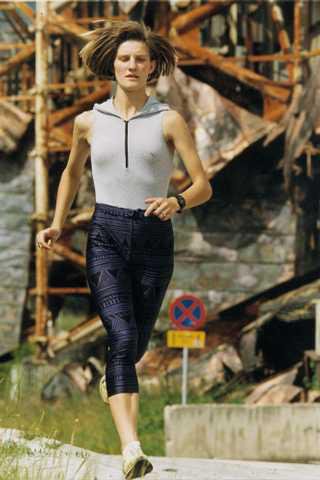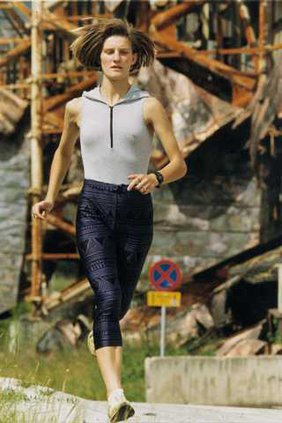A 22-year-old distance runner who spent two weeks as a Serb prisoner last month, she is one of 10 athletes selected for war-torn Bosnia-Herzegovina’s first Olympic team.
Sarajevo, host of the 1984 Winter Olympics, has been under siege for three months by Serb irregulars who oppose Bosnia’s independence from Yugoslavia, approved by the Croat and Muslim majority in a Feb. 29 referendum.
‘‘Because of the war, for our hearts and for our souls, it’s important to show the world we are there, in Barcelona,’’ said Izudin Filipovic, secretary-general of Bosnian Olympic Committee.
Filipovic said the International Olympic Committee is expected to decide by next week whether to admit Bosnia as a member and allow it to compete at Barcelona under its own flag.
On Thursday, IOC chief Juan Antonio Samaranch proposed that Yugoslavs compete as individuals under the neutral Olympic flag and be called the Independent Team.
Bosnia’s top-rated athlete is Mirjana Horvat. Filipovic says she could finish in the top 10 in the women’s air rifle competition. She has been training in her hometown of Zenica, on the fringes of a combat zone, but will finish preparing in the Croatian port of Split.
‘‘She’s our top contender,’’ Filipovic said. ‘‘For the others, it’s important just to be there, under the flag of Bosnia-Herzegovina.’’
Six other hopefuls also are training in Split, while canoe racer Aleksandar Duric is in Hungary. But Buric and Vlado Paradzik, a judo competitor who serves in a police paramilitary unit, remain in Sarajevo and don’t know yet how they’ll reach Barcelona.
Buric, who hopes to compete in the 3,000- and 5,000-meter events, trains on streets and park pathways even during artillery attacks. If the bombardment seems too fierce, she runs up and down the stairs in her seven-story apartment building.
She varies her route daily, but drew sniper fire last week near the stadium built for the 1984 Games.
‘‘I was frightened,’’ she said Thursday. ‘‘But I don’t feel as much fear since I got out of prison. ... This morning, during an alert, I was the only one on the streets.’’
Buric, a journalism student, was taken prisoner along with 13 relatives by Serb militiaman on June 1 in Rajlovac, her neighborhood on the outskirts of Sarajevo. She was released two weeks later, but her equipment, including running shoes, were confiscated. Her grandparents remain under house arrest.
She hasn’t seen her brother for weeks. She thought her boyfriend was missing but learned Thursday that he was helping defend the besieged Dobrinja suburb, site of the 1984 Olympic Village.
Buric’s best time in the 3,000 is 9 minutes, 22 seconds. She began racing for Yugoslavia in 1985, and twice won events in the Balkan Games.
Paradzik, 25, was given leave from his police unit two weeks ago to train full-time at a war-damaged sports club for the 60-kilogram judo division. Before then, he helped in the front-line defense of Sarajevo.
Paradzik has never competed abroad and has only one capable training partner.
‘‘It would be a great success for Bosnia to be in the Olympics,’’ he said. ‘‘This will be proof that even in warfare it’s possible to train and compete.’’
Filipovic said he had hoped that athletes from Serbia and Montenegro, which form what is left of Yugoslavia, would be banned from the Olympics in accordance with U.N. sanctions. He was disappointed by Samaranch’s proposal that they compete as individuals under the Olympic flag.
Filipovic said the Bosnians would be willing to compete under the Olympic flag if necessary, but only if Bosnian and Serbian athletes were separated in opening and closing ceremonies.
‘‘We don’t want to march shoulder to shoulder with athletes from Serbia,’’ he said.
Buric, however, said she would welcome a reunion with former teammates from Serbia.
‘‘Sports is supposed to get people closer, without politics getting in the way,’’ she said.
FROM AP ARCHIVES: Bosnian Olympian dodges shells


SARAJEVO, Bosnia-Herzegovina (AP) — Running scared in borrowed track shoes, Mirsada Buric strides through the debris-strewn streets of this former Olympic city, risking sniper fire to keep alive her dream of competing in the Summer Games.
Sign up for the Herald's free e-newsletter